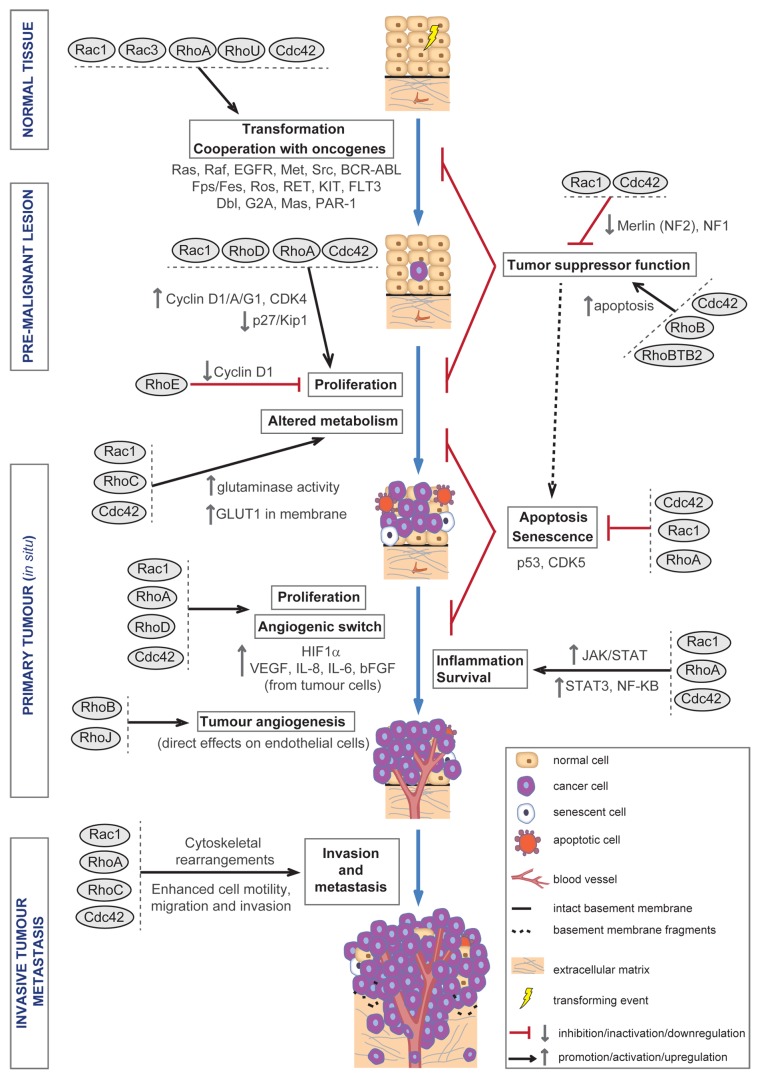Figure 1. Roles of Rho GTPases during malignant transformation and tumor progression. Diagram showing different roles of Rho GTPases during cell transformation and tumor progression. Upon cell transformation, Rho GTPases contribute—alone or in cooperation with oncogenes—to aberrant proliferation, altered metabolism, increased survival, and evasion of senescence and apoptosis, which will sustain tumor proliferation. Later on, Rho GTPases also contribute to the development of an inflammatory environment, which increases cell survival and tumor progression; and to the induction of tumor angiogenesis, which will sustain tumor growth further and may also serve as an escape route for cancer cells to colonize distant organs. Rho GTPases are also essential for the cytoskeletal changes underlying cell motility and invasion, which allow cancer cells to migrate away from the primary tumor and invade surrounding and later distant tissues, ultimately developing metastasis.

An official website of the United States government
Here's how you know
Official websites use .gov
A
.gov website belongs to an official
government organization in the United States.
Secure .gov websites use HTTPS
A lock (
) or https:// means you've safely
connected to the .gov website. Share sensitive
information only on official, secure websites.
